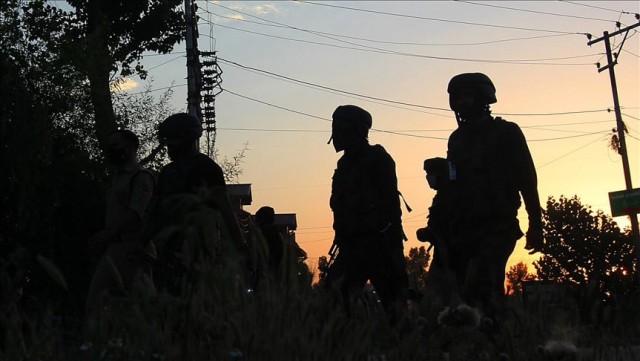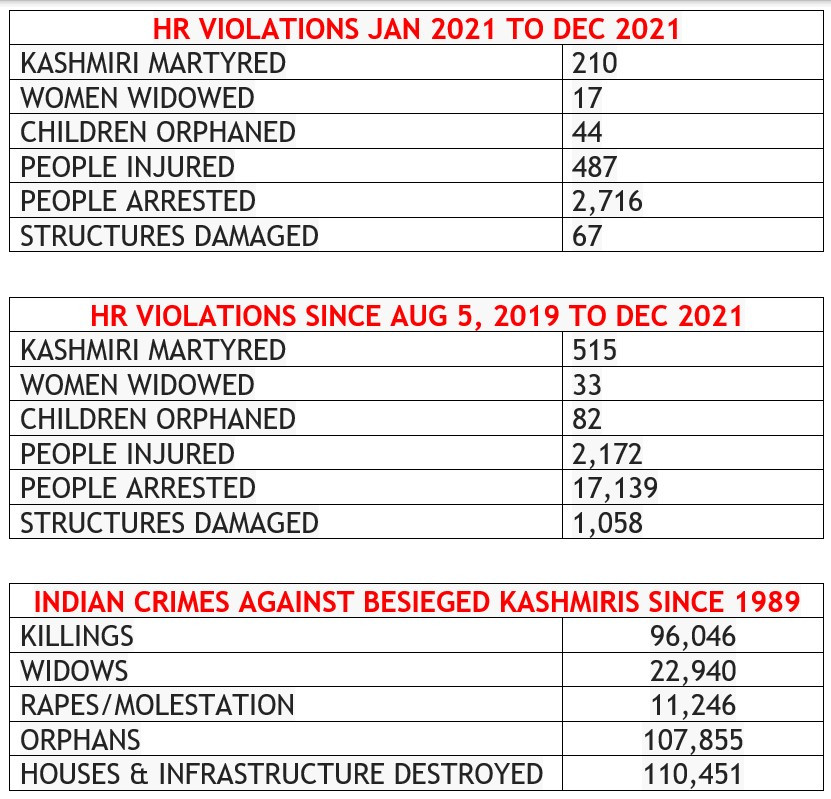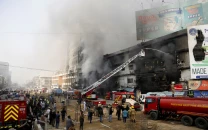IIOJK commemorates 90th annual Kashmir Martyrs’ Day
In 1931 an Indian maharaja had killed 22 Kashmiris, today brutalities continue under the Modi regime

The Indian Illegally Occupied Jammu and Kashmir (IIOJK) on Wednesday commemorated the 90th annual Kashmir Martyrs’ Day, to mark the incident of July 13, 1931, when 22 Kashmiris were shot dead by soldiers of Dogra ruler Maharaja Hari Singh as they attempted to complete the call for prayer outside the Srinagar jail.
Kashmiris had risen against the Dogra rule and protested the prosecution of Abdul Qadeer Khan Ghazi, a sympathiser of the Kashmir struggle.
This launched the Kashmir freedom struggle which had different phases, including political struggle and civilian protests by Kashmiris living on both sides of the Line of Control, as well as the world observing Kashmir Martyrs’ Day.
After the abrogation of Article 370 on December 27, 2019, the Bharatiya Janta Party (BJP) removed Kashmir Martyrs' Day from its list of public holidays for 2020, while October 26 was added to be observed as 'Accession Day' which was in fact the Day of Occupation of Jammu and Kashmir.
Right-wing supporters of the BJP are asking the Modi government to declare September 23 as a gazetted holiday for the birth anniversary of Maharaja Hari Singh – the killer of Kashmiri Muslims.
Read Islamabad rejects Delhi’s plan to hold G-20 summit in IIOJK
The trend is aimed at derogating and dismissing the long struggle of the Kashmiris for freedom that has withstood decades of suppression and has grown stronger consistently.
Though the IIOJK has been brutalised for years, since the lockdown in August 2021, Indian security forces have amped up brutalities against Kashmiris.
Amid increased militarisation and dehumanisation of Kashmiris after the annexation of IIOJK, the frustration, anger and resentment in the valley are rising.
The BJP government’s religious nationalism tried to make an internationally dangerous conflict a national political issue and change the complexion of conflict by drastic actions that preclude peaceful and just resolution.

Factbox outlining Indian brutalities in IIOJK.



















COMMENTS
Comments are moderated and generally will be posted if they are on-topic and not abusive.
For more information, please see our Comments FAQ